
Gladiator (2000): There Was Once a Dream That Was Rome
“Gladiator,” a 2000 epic by Ridley Scott, revived the sword-and-sandal genre, featuring Russell Crowe’s acclaimed performance, with rich visuals and historical liberties.

“Gladiator,” a 2000 epic by Ridley Scott, revived the sword-and-sandal genre, featuring Russell Crowe’s acclaimed performance, with rich visuals and historical liberties.

An epic that details the checkered rise and fall of French Emperor Napoleon Bonaparte and his relentless journey to power through the prism of his addictive, volatile relationship with his wife, Josephine
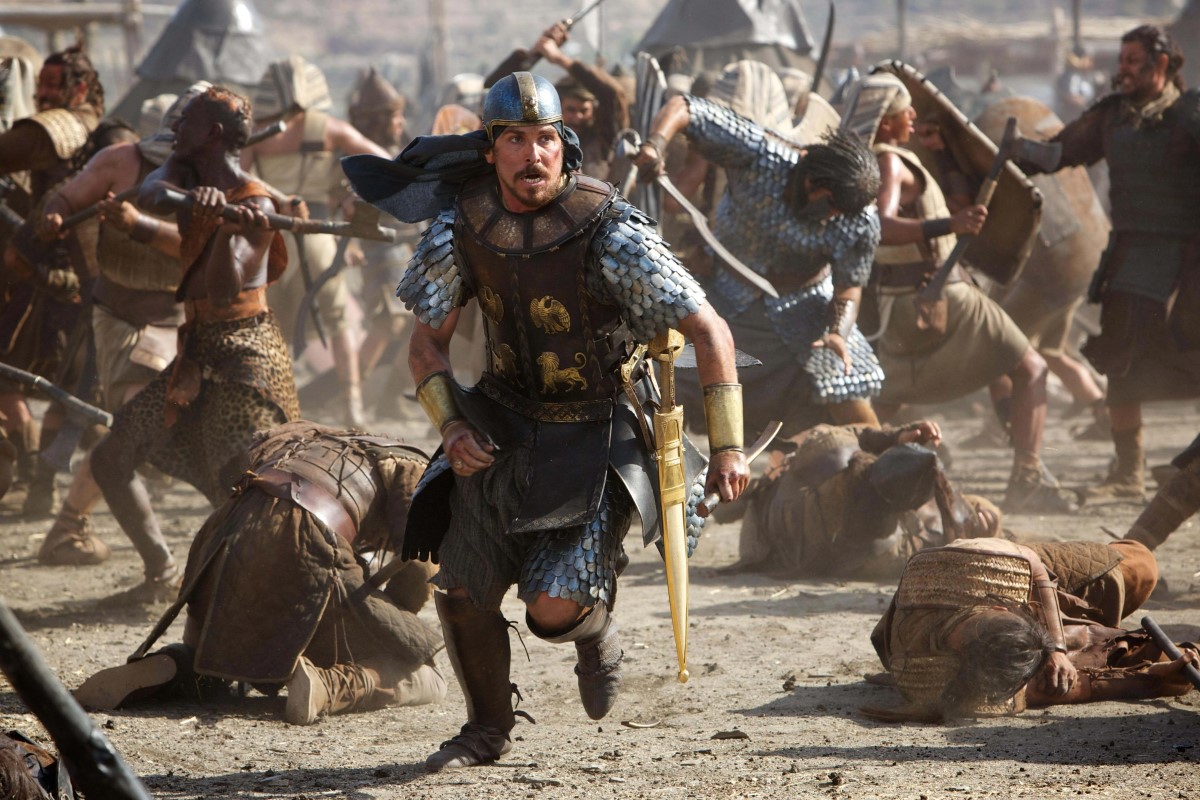
The defiant leader Moses rises up against Egyptian Pharaoh Ramses II, setting six hundred thousand slaves on a monumental journey of escape from Egypt and its terrifying cycle of deadly plagues

When Patrizia Reggiani, an outsider from humble beginnings, marries into the Gucci family, her unbridled ambition begins to unravel their legacy and triggers a reckless spiral of betrayal, decadence, revenge, and ultimately…murder.

King Charles VI declares that Knight Jean de Carrouges settle his dispute with his squire by challenging him to a duel.
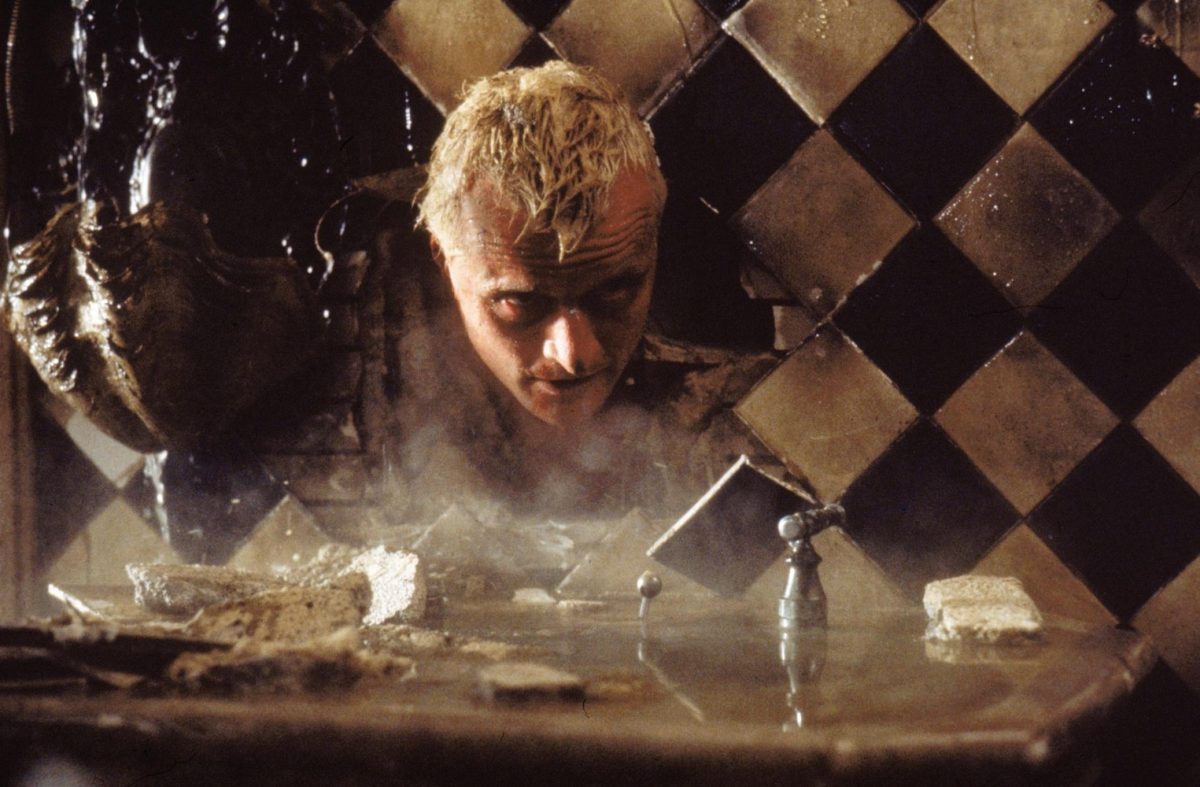
To enjoy Blade Runner, you need only disregard, as far as possible, the actors and dialogue. (And the score) The script is another reworking of a threat to humans by humanoids —one more variation on the Invasion of the Body Snatchers theme.
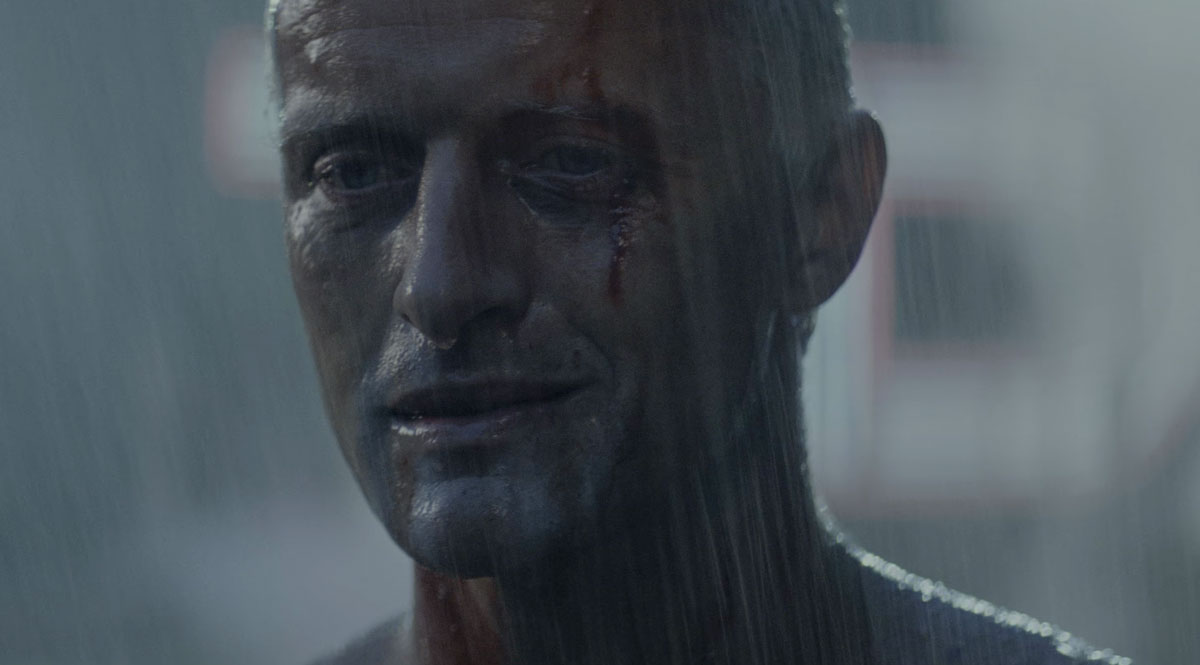
Slovenly plotting and characterization, but consistently fascinating detail: exploitative violence and humanistic regrets: shallow formulas and philosophical questioning—this is the mix of banality and brilliance to be found in Blade Runner.
In this interview West Coast editors Blake Mitchell and Jim Ferguson talked to Syd about his career past and present, and specifically his involvement with the soon-to-be-released sf thriller, Blade Runner.
For the filmgoer who can distance himself from the occasional gore of the first viewing, or who can sit through it a second time, Alien furnishes more than simply an opportunity to scream in unison with a couple of hundred other people.
Talking with the creators of Alien (1979). Interviews with Ridley Scott (Director), Walter Hill (Producer), David Giler (Producer), Carlo Rambaldi (Creator of Alien Head Effects), Bolaji Badejo (“The Alien”), Michael Seymour (Production Designer), Ivor Powell (Associate Producer), Roger Dicken (Creator of Small Alien Forms), H.R. Giger (Alien Designer)
Doll and Faller assert that Ridley Scott’s film, Blade Runner, exhibits elements of two distinct pulp genres, film noir and science fiction. The genre cross-pollination is a reflection of Philip K. Dick’s novel, Do Androids Dream of Electric Sheep?, upon which the movie is based.
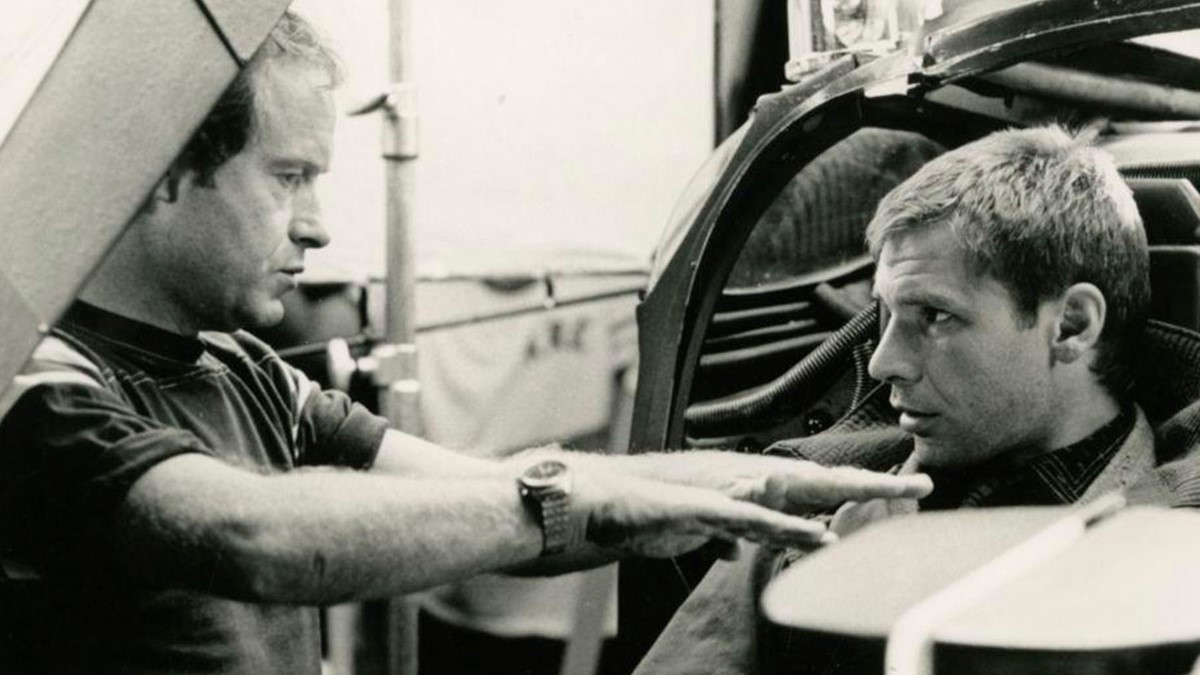
Interviews with screenwriters Hampton Fancher and David Peoples, industrial designer Syd Mead, production designer Lawrence C. Paull and director Ridley Scott. Articles & Interviews by Randy & Jean-Marc Lofficier for Starlog magazine, November 1992 issue.
Ridley Scott’s film “Blade Runner” is rooted in the myths and legends of Western culture and draws on a number of genres including film noir and science fiction. Central to the plot, though, is the Genesis story of the creation and fall. Gravett examines the religious subtext of the film, and discusses Deckard and Roy Batty’s relationship in terms of the biblical story of Jacob and Esau.
Excerpts from an interview with David Dryer, one of three special photographic effects supervisors for Blade Runner along with Douglas Trumbull and Richard Yuricich
“Films usually attempt to do the future by presenting a rather bleak, pristine, austere, clean look. It could go that way, but I’ve got a feeling it’s going to go the other way.” Ridley Scott is discussing his approach in directing Blade Runner, a detective thriller set forty or fifty years in the future.
Ridley Scott’s 1982 film ‘Blade Runner’ appeared just before William Gibson’s quintessential cyberpunk novel ‘Neuromancer’ was published in 1984, and the two share enough features that one might well retroactively call Blade Runner the first truly cyberpunk film.
Quiet. Calm. Intense. Concerned. Experienced. Each word is a valid description of Harry Dean Stanton. Many who have seen his seemingly effortless performance as “Brett” in Alien might be surprised to learn the breadth of his career and the depth of his abilities.
The article discusses the contradiction between the two versions of the film, Blade Runner, directed by Ridley Scott.
Both in what it shows and in what is absent from it, Blade Runner (1982) deviates in morally significant ways from the 1968 novel by Dick on which it is based.
One of the big questions in Blade Runner is “What does it mean to be Human?” John W. Whitehead has a look at this and related questions in Blade Runner couched in a view of the postmodern world.
Blade Runner (1982), review by Norman Spinrad for Starlog magazine, November 1982 Issue
Hampton Fancher believes ‘Blade Runner’, at its heart, is a love story between Rick Deckard and Rachael.
Essay about an ecofeminist perspective of Ridley Scott’s Blade Runner
At the end of Blade Runner, why does Roy Batty catch Deckard as he is about to fall?
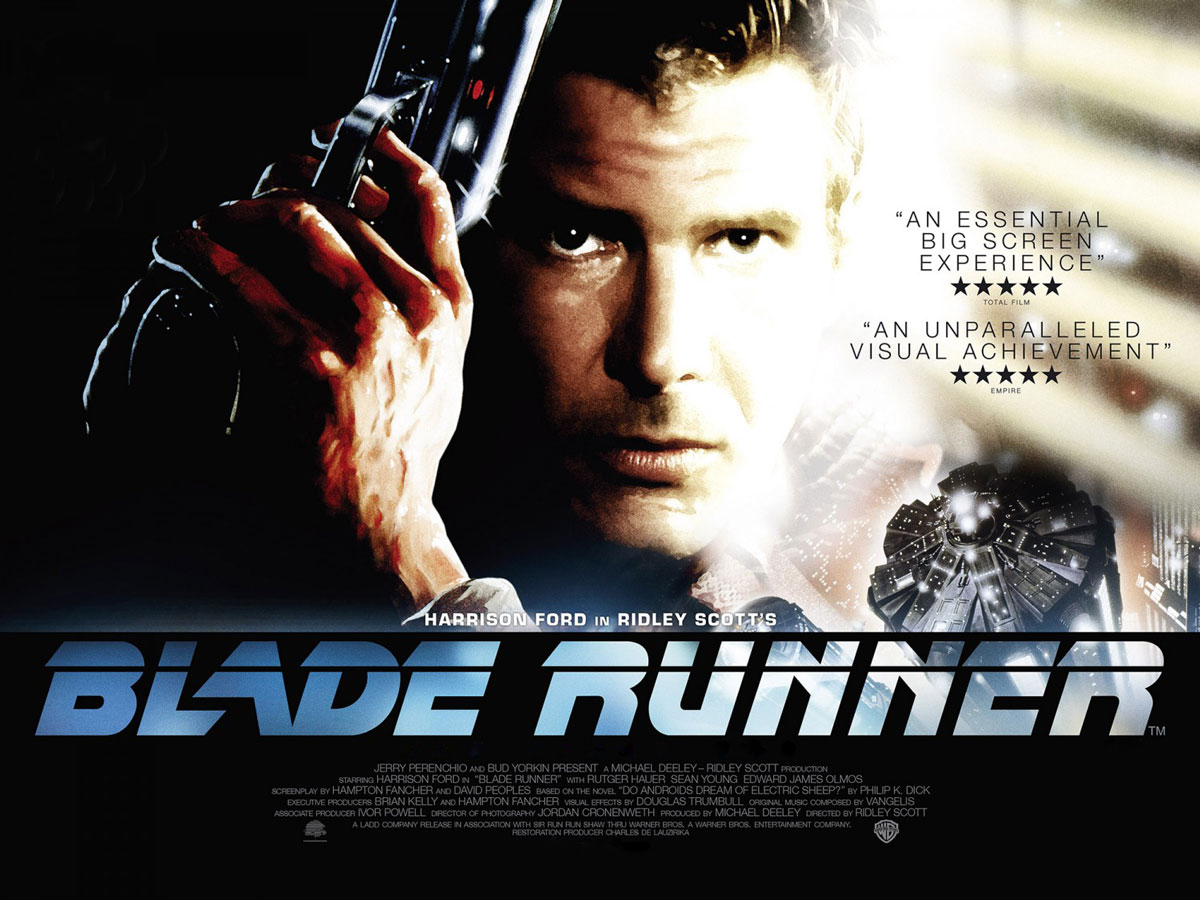
Scott’s definitive Blade Runner: The Final Cut (2007, 117 minutes) was released by Warner Bros. on October 5, 2007. This is the only version over which Scott had complete artistic and editorial control.
by Michael Dempsey In director Ridley Scott’s $30-million noir thriller, Blade Runner, set in Los Angeles 36 years from now, sophisticated new robots known as
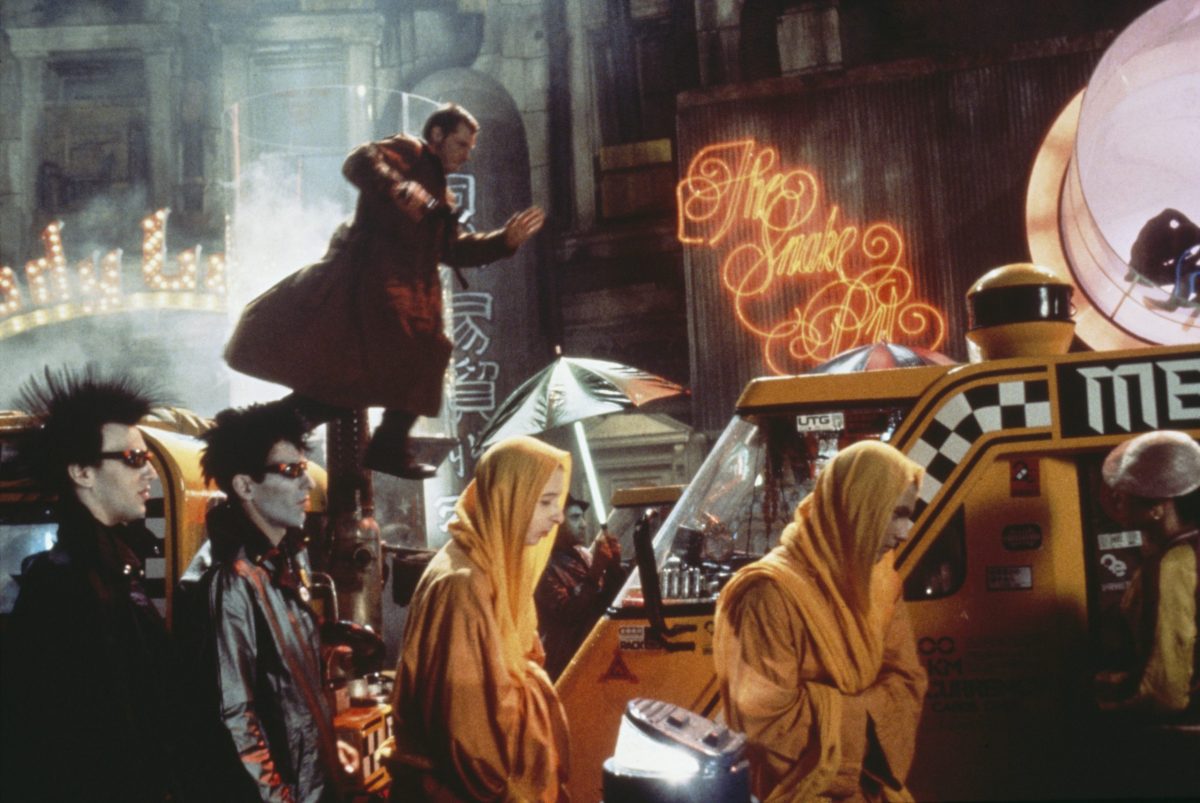
In the decade that has elapsed since Blade Runner’s first commercial release, Ridley Scott’s 1982 science-fiction film has been retroactively hailed as one of the most powerful and influential examples of cinematic postmodernism.
The essay by David Desser discusses the film’s connections to the Bible, Milton’s Paradise Lost and Mary Shelley’s Frankenstein.
Unlike the vast majority of films in the science fiction genre, ‘Blade Runner’ refuses to neutralize the most abhorrent tendencies of our age and casts serious doubt on a host of the cliches about where we should locate their causes
by Harlan Kennedy Do Androids dream of electric sheep? Do Northumbrians dream of eclectic myths? Every so often the British cinema hatches a mold-busting filmmaker,
Get the best articles once a week directly to your inbox!